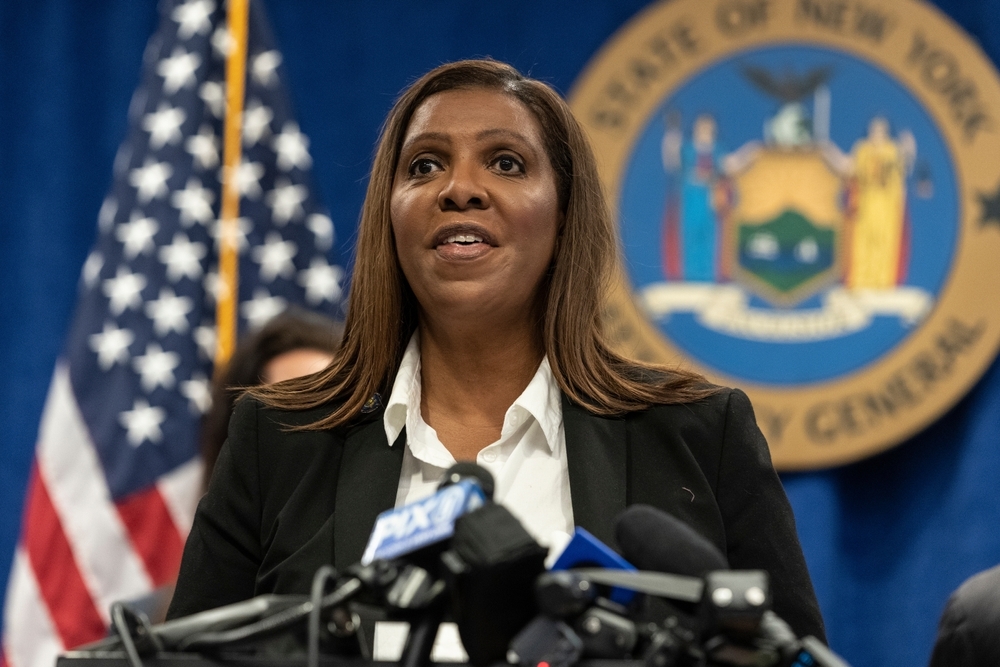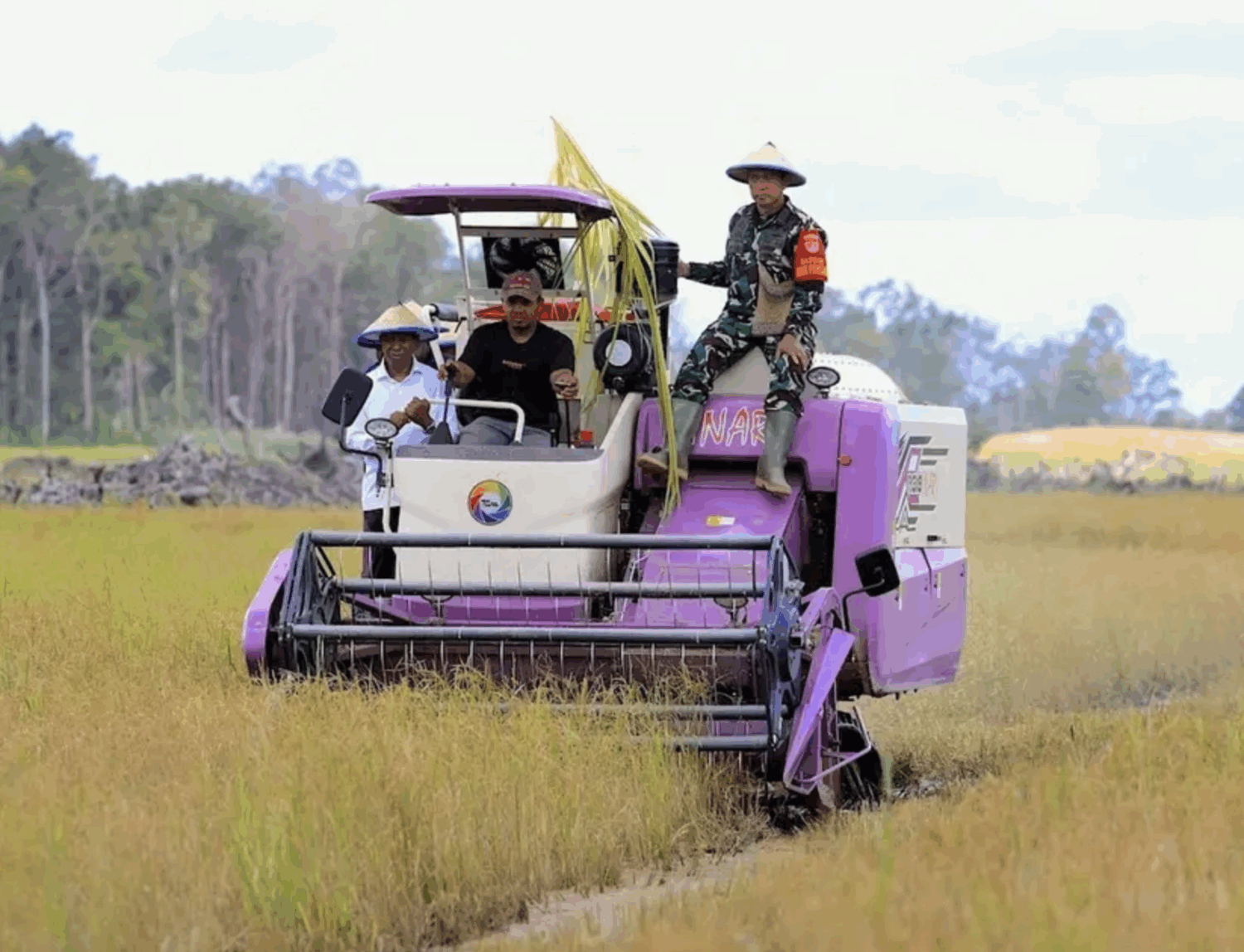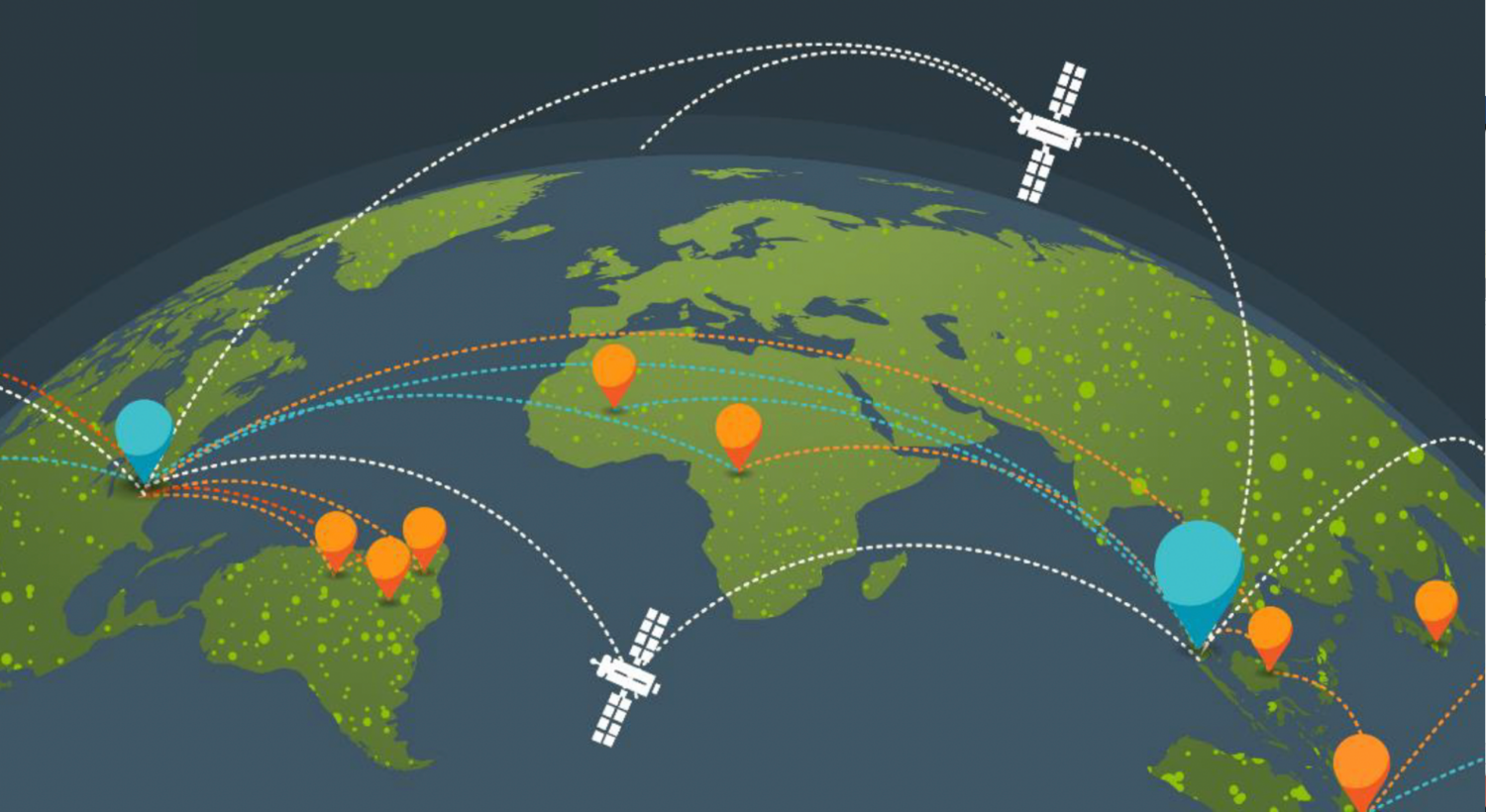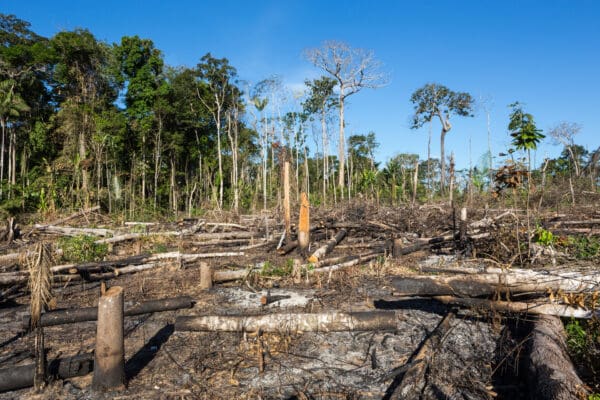
Deforestation cases linked to JBS beef supply chain harm Indigenous lands
68 CASES FACTSHEET 68 CASES FACTSHEET (PORTUGUESE) 68 DEFORESTATION CASES PRESS RELEASE (PORTUGUESE) PRESS RELEASE (ENGLISH)
Destruction of the Amazon rainforest continues at pace, with staggering losses of forest cover, bringing it ever closer to an irreversible tipping point where vast areas die back and turn to dry savannahs. The Amazon helps regulate global weather patterns and stores carbon in its millions of trees to help cool our warming world. But the scale of deforestation means it is fast releasing more carbon than it stores. Its neighbouring biome, the Cerrado savannah is disappearing even faster, having lost half of its surface area. These losses have severe local and global implications.

Agricultural expansion to rear cattle or to grow soy to feed farm animals, largely in intensive systems, is the biggest driver of deforestation in the Amazon and the Cerrado, harming Indigenous and local communities and decimating wildlife populations. Encroachment on to Indigenous territories is widespread, threatening the rights, lives, and livelihoods of people for whom the forest is home.
What’s the issue with beef?
Across the Amazon farms and slaughterhouses support industrial meat operations. Cattle reared on deforested land, which has been cleared and burned, are moved from farm to farm, before entering the supply chain to be turned into beef products sold in supermarkets across the world. Co-products of the meat industry such as leather and collagen supply the auto and beauty industries.
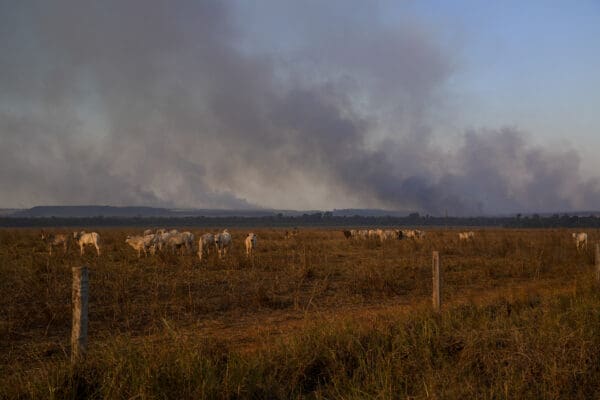
Why JBS?
At the centre of these operations is Brazilian meat giant, JBS – the largest and most powerful meat processing company in the world. As part of its expansive business model, JBS is linked to the destruction and degradation of vast swathes of rainforests and ecosystems. Researchers estimate that JBS’s total deforestation footprint in six Brazilian states since 2008 may be as high as 200,000 hectares in its direct supply chain and some 1.5 million hectares in its indirect supply chain. This is linked to forest fires, modern-day slavery, and violent invasions of Indigenous peoples’ ancestral lands.
What are the cases of deforestation?
Mighty Earth and our partner AidEnvironment have identified 68 cases of deforestation linked to JBS’s beef supply chain, covering an area of more than 125,000 hectares, almost equivalent in size to that of the São Paulo in Brazil, or London in the UK. Most of the encroachment is occurring in the state of Mato Grosso, one of the main deforestation frontiers for meat and soy production in Brazil. The state is also a transition area between the Cerrado and the Amazon, containing key areas of both biomes.
Using satellite technology and the Brazilian government’s DETER deforestation detection system, we mapped the location of farms in JBS’s meat supply chain and their proximity to Indigenous territories. Twelve of these farms identified as deforesting are connected to ten Indigenous Lands – either in proximity, bordering or overlapping in some cases.
One of the cases identified is a single cattle farm (Fazenda Santiago), located in the city of Paranatinga in Mato Grosso, which overlaps an area claimed by the Ikpeng Indigenous people. More than 11,000 hectares, equivalent to 16,000 football pitches were deforested in 2022.
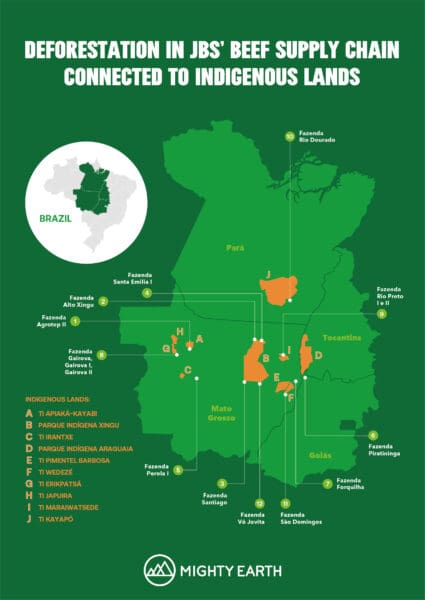
All the cases were analyzed, confirmed through high-resolution satellite imagery, and validated before being published. The cases analyzed between January 2019 and October 2020 were published in the Rapid Response reports, commissioned by Mighty Earth and AidEnvironment. The cases between January 2021 and September 2022 were published in the Real-time Deforestation Monitoring (RDM) reports, produced by AidEnvironment. However, JBS has point blank refused to investigate all 68 cases of deforestation that we sent them last December.
68 cases, Zero response from JBS
In November and December of 2022, we sent JBS the 68 cases of deforestation. JBS responded to say it wouldn’t investigate the verified deforestation cases because the real-time system used to identify the cases does not align with its deforestation monitoring protocol. Instead, JBS relies solely on the annual deforestation satellite detection system (PRODES), allowing up to one year for deforestation to continue before the company does anything about it.
JBS’s position as the largest meat processor in the word, and by some estimates is responsible for around half of all cattle slaughtered in Brazil, means the company has a crucial role and enormous potential to act quickly on deforestation at the 10-hectare level, before it gets to 1,000- or 10,000-hectare level.
Given the climate and nature emergency, companies can’t sit on cases of deforestation in their supply chains and do nothing.
JBS : time to step up your game.
